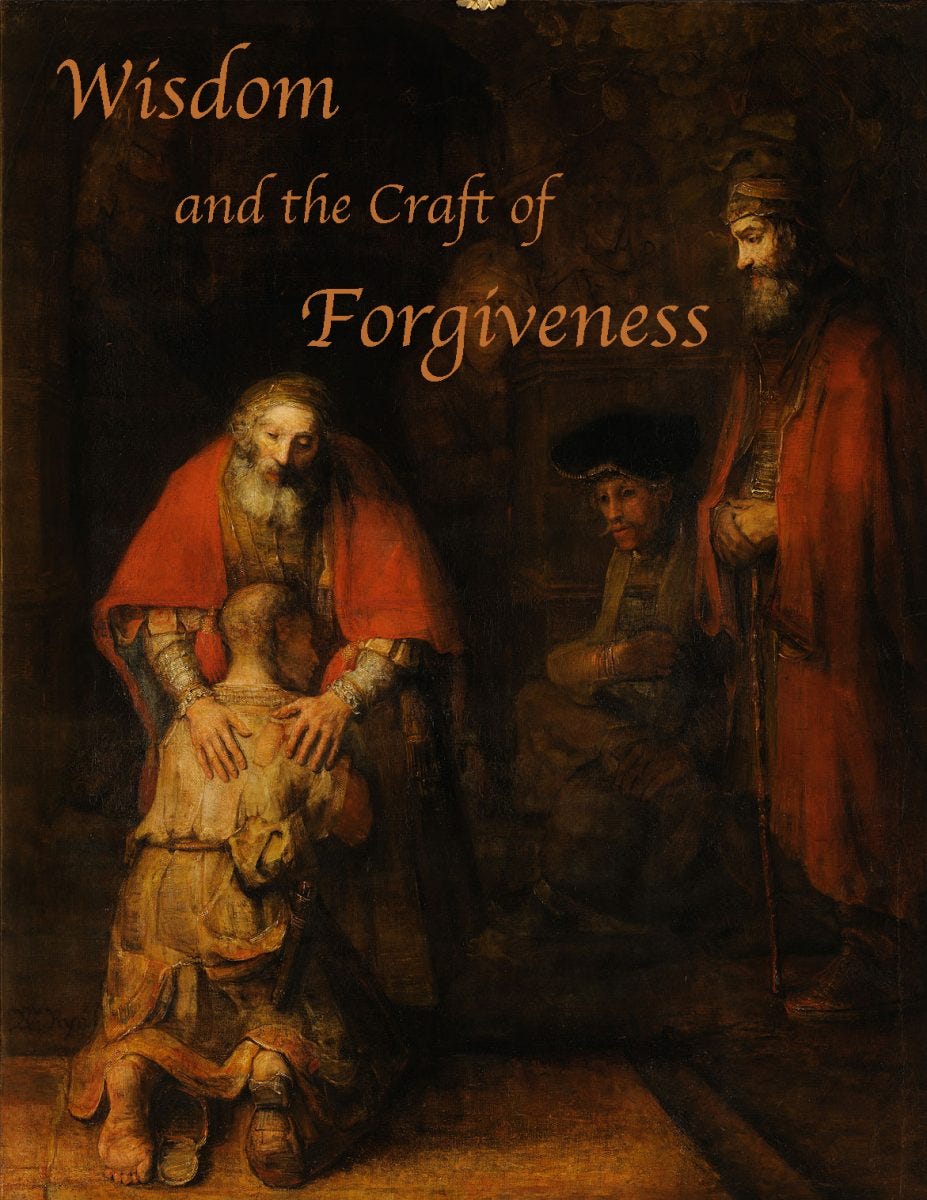Wisdom and the Craft of Forgiveness

Wisdom is the knowledge of how various things ought to fit together properly and the skill to make them so. Whether you are looking at Bezalel, an artist and master craftsman, who is given the Spirit of wisdom to construct the tabernacle (Ex 31.2-5), or the wise king, Solomon, who knows how to put people back in right relationship with one another–justice–wisdom sees how different parts of the world are to fit properly with one another and has the skill to make them so. Paul himself is a “wise master builder” who is constructing the church upon the foundation of Christ Jesus (1Cor 3.10). He knows how to put people together so that they can live the way that they ought to live. Wisdom takes all the tools of knowledge and logic and artistically works with different materials in diverse situations to make something beautiful even when there are no step-by-step, paint-by-numbers instructions. Life and relationships are not always that simple.
That is why we must become artists; craftsmen who have been trained thoroughly in the fundamentals who can then beautifully riff off of those fundamentals, staying true to them, while also dealing with situations for which there are no sets of rules. Like musicians who have learned scales and harmonies who grow into composers of beautiful music or engineers who have learned the science of structures who grow into designers of beautiful buildings, so all of us as Christians must get down the basics so that we may grow to be skilled craftsman, wise master builders, in relationships.
One of the tools that we must handle with a deft facility within our relationships is forgiveness. We are given the tool early in our lives and taught the basics. As a child, whenever a sibling or friend says something unkind or takes something from you, you are instructed by your parents to forgive him; graciously release the offender from any vengeance or penalty for his sin. Even though for a child this seems to be an arduous task, as he grows older, he realizes just how simple it was to rebuild broken relationships with these relatively minor offenses. However, as he grows older and life becomes more complex, the skills of forgiveness must be developed in order to continue to build and re-build relationships. As people suffer the indignity and deep pain of abuse, abandonment, and a myriad of other sins, forgiveness is not as easy as “forgive and move on as if nothing ever happened.” Some sins affect us more deeply and with longer-lasting consequences than others. Someone uncharacteristically saying something unkind is not the same as dealing with the lasting pain and lingering effects of covenant betrayal in adultery and divorce. The same basic tool is used in both situations–forgiveness–but how it is used and what it looks like will vary.
Throughout the season of Lent, I will be focusing on becoming more skilled in the craft of forgiveness in my preaching and in my articles. We live in a culture currently in which guilt and division are prominent. All of the Critical Theories and Intersectionality that can only see relationships as “oppressor-oppressed,” that thrive on fomenting the divisions, are preaching that the oppressed and the oppressors are such, many times, based solely on the nature of their existence. White people are racists by virtue of their whiteness. There is no remedy. There is no forgiveness. Because there is no forgiveness, there is no reconciliation. Contrary to the gospel we are commanded to preach, these theories have gained prominence in Western churches. Consequently, instead of being wise master builders who are building God’s temple, we are tearing it apart and setting all of its stones and furniture at odds with one another. The church has become the Babylonians who raze the temple to the ground.
In this cultural climate, it is incumbent upon the church to regain the skill of dealing with sin through the grace of forgiveness. The gospel proclaims the reconciliation of God with man through the grace of forgiveness through the shed blood and resurrection of Christ Jesus (cf. e.g., Ac 5.31; 13.38; 26.18; Rom 4.25; Eph 1.7; Col 1.14). As renewed images of our gracious God who forgives, we are to share his character, to be imitators of him, being kind, forgiving one another even as God for Christ’s sake has forgiven us (Eph 4.17–5.2). This forgiveness is not the end product but the tool that builds healthy, reconciled relationships. Reconciliation achieved through forgiveness embodies the gospel of Christ Jesus in this hostile, guilt-ridden, adversarial world.
May God fill us with his Spirit of wisdom so that we may learn to build relationships that image his own through skillfully working with the tool of forgiveness.
The post Wisdom and the Craft of Forgiveness appeared first on Kuyperian Commentary.

